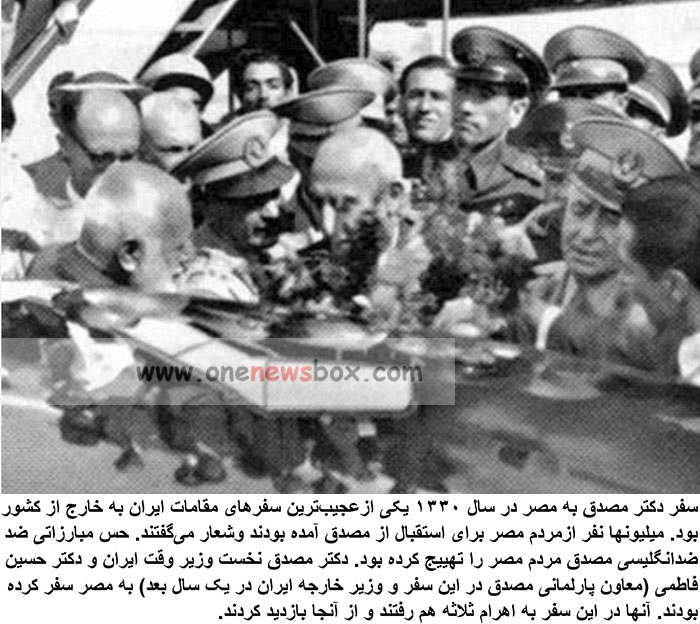Mossadegh and Egypt’s Anti-Colonial Struggle: A Shared Legacy of Independence
On November 20, 1951, Persian Prime Minister Mohammad Mossadegh made a brief stop in Egypt during his return from the United Nations, where he was greeted as a hero by the Egyptian people. Egypt, at the time, was deeply entrenched in its own battle against British imperialism, with growing resentment towards British control over the Suez Canal and its political interference. Mossadegh, fresh from his success in nationalizing Iran’s oil industry and challenging British dominance, was seen as a symbol of resistance—a powerful leader standing up to Western powers. His arrival in Egypt coincided with the recent cancellation of the 1936 Anglo-Egyptian Treaty by Egyptian Prime Minister Mustafa Al-Nahhas, a direct response to the rising tide of anti-British sentiment in the country.
Mossadegh’s influence in Egypt and his anti-colonial stance resonated deeply within Egyptian society, which had long struggled with British imperialism. His presence in Egypt represented more than just a diplomatic visit—it symbolized a shared struggle for national sovereignty and independence. This article explores the significance of Mossadegh’s visit within the broader context of Egypt’s anti-colonial movement, particularly in the post-World War II era, and examines the ways in which his leadership inspired a joint anti-colonial solidarity between Iran, Egypt, and other Middle Eastern nations.

